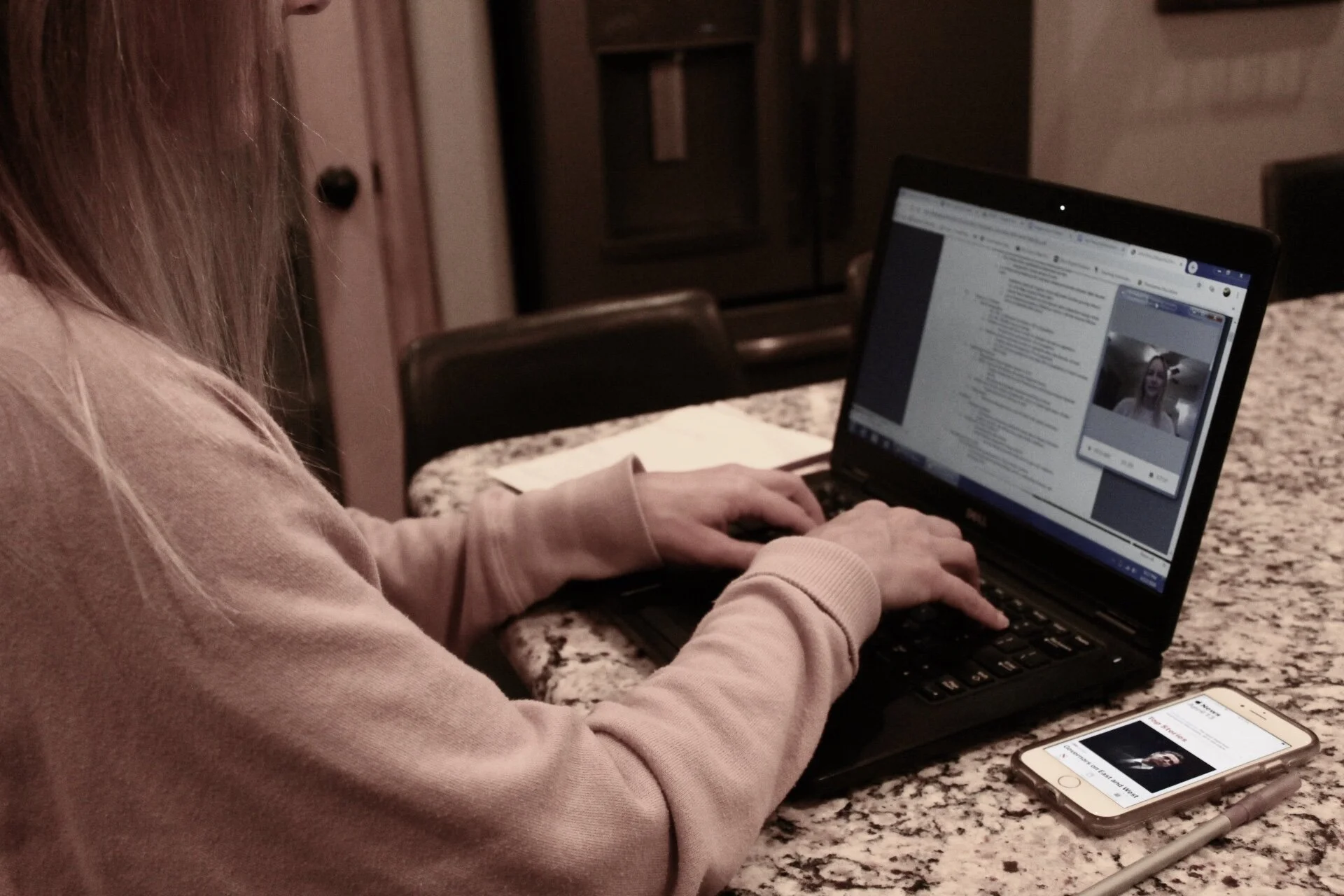10 Ways to Be More Productive at Home
Photo by Cora Kuhlenbeck
Working at home during quarantine can be tough. There are a lot more distractions lurking at home than at a workplace or school. Luckily, there are a lot of simple changes to your routine that can help you boost your productivity and focus.
1. Wake up naturally
As often as you can, let your body wake up naturally. Though many people believe so, waking up early doesn’t necessarily lead to increased productivity. If you are a morning person, then wake up early. If you are a night person, stay up later to do your work, and wake up later in the day. According to Britt Joiner, a college grad who helps businesses with marketing and productivity challenges, “The most important thing isn’t what time you get out of bed— it’s getting in tune with your body’s clock for a good routine” (1). If possible, wake up when your body naturally wants to so you can avoid exhaustion and be more productive during the day.
2. Change out of your pajamas
Even though you aren’t going anywhere, it is good to go through the same morning routine you usually do before school or work. Just changing from your PJs to something different signals your body that it’s time to work and not sleep (4). This doesn’t mean you necessarily have to get dressed in the same clothes you wear to school, but just wearing an outfit that isn’t pajamas signals to yourself that you have to wake up and work. Anabel Maldonado, the founder of the website The Psychology of Fashion, recommends wearing “Smart, clean loungewear, or smarter casual clothes… something you could, in theory, at least wear to the airport” (2). Getting out of your PJ’s makes your brain switch from a sleepy mode to a productive mode and prepares you to work efficiently.
3. Open your blinds
Though opening your blinds seems unimportant, it does help you wake up in the morning and focus throughout the day. Natural light helps you wake up gradually and feel fresher which can help you concentrate when you start to work (5).
4. Eat breakfast and drink water before you start to work
Eating a proper breakfast before starting to work has many positive effects on your health and energy levels for the remainder of the day. Eating a breakfast before starting your day makes you less likely to be obese, stabilizes blood-sugar levels, reduces hunger throughout the day, gives you energy, improves your mood, and improves your memory and concentration. Just a little food can help you start your day out with more focus and energy. Similarly, drinking water right when you wake up comes with similar effects and has also been associated with weight loss (5).
5. Start your day slow
When you wake up, don’t jump right into your work. Reading a book, listening to a podcast, or other relaxing, non-technological activities can help wake you up gradually and make you feel more fresh when you start your work (5).
6. Stay off your technology
When you wake up, try to stay off technology until breakfast. Immediately jumping on social media or other apps on your phone is a very frantic way to start your day. Screens and technology contain lots of information, and trying to process all of that information first thing in the morning can be exhausting and can even stress you out or make you feel behind (5).
While you’re working, don’t go on your phone, even just for a minute. One quick check can easily turn into a lot of wasted time. If you do take a break and use your phone, give yourself a strict time limit to avoid losing hours scrolling (6). One way to avoid being distracted by your technology is to download a focus app. These apps can restrict your access to certain apps or give you rewards for staying off your phone. Some examples of these phone apps are Self Control, Forest, Pomodone, Flora and Freedom. On PCs, there's a couple of extensions you can download too like Hocus Focus and Focus for Mac.
7. Have a clean, designated workspace
Having a clean workspace helps you concentrate, feel in control, and relax. Studies have shown that people who work in a clutter-less workspace usually outperform counterparts who work in cluttered areas. Having clutter around you when you are trying to work pulls your attention away from your work and distracts you (1). On top of this, having a specifically dedicated workspace can help you be more productive. Having a specific area for work without distractions will help put you in more of a working mood once you enter that area (6). It also tricks your mind into having more of a working attitude. Being in that area always means it’s time to work, which prevents mental confusion and makes it easier to focus.
8. Exercise
Exercising for even just 10 minutes every morning can help you improve your self-control and heighten your energy for the rest of the day. Exercising releases GABA, a neurotransmitter that calms your brain and gives you better self-control, making you more productive (5). If you’re feeling unfocused while working, take a quick break to walk around your neighborhood. This little bit of exercise and change of scenery will help refresh your mind and help you refocus once you return to work.
9. Follow a schedule
Having a plan for when to do work and when to have breaks can keep you accountable. Not only will a schedule make sure that you do enough of your work, it will also make sure you don’t work too much and burn out. You should plan a certain time to do your work, a certain time to take breaks, and a certain time that you will cut off your work for the day.
10. Make goals
Making a list of a couple of goals or tasks for the next day can boost your productivity. According to Joiner, many of the world’s most successful businessmen list three things that they want to accomplish the next day the night before (1). Writing these goals down or telling someone else about them will hold you more accountable to actually finishing them. Goals can also give you a feeling of accomplishment once you can check them off as completed. Breaking down big tasks into small goals can help you avoid procrastination or trying to finish the task all the day before the deadline (3).






